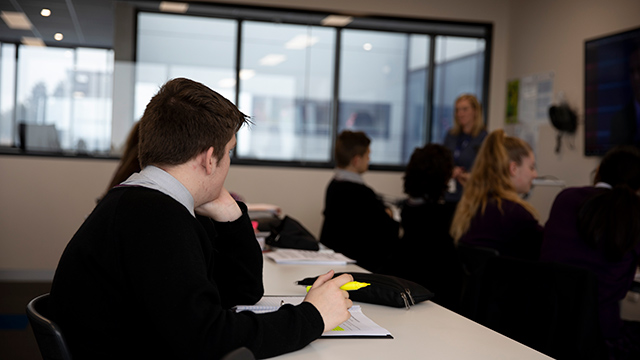What's depression?
From time to time, everyone feels depressed, but it usually doesn’t last
A diagnosis of depression is made only when the:
- depressed mood has lasted more than two weeks
- behaviour is seen in more than one situation (for example, at home and at school)
- symptoms are severe enough to limit the child or young person’s ability to cope with everyday situations or cause problems at home, at school and with friends.
Learn more about the different types of depression.
There’s no single cause of depression
Many factors come into play, such as:
- life events (for example, a death in the family or family separation)
- biological factors (for example, genetics)
- learning community-based factors (for example, peer group difficulties, especially bullying. psychological factors (for example, a tendency to think negatively).
-
How does depression affect children and young people?
Depression can make it hard for children and young people to learn. Without professional support, this can lead to long-term effects on their school achievement.
Sometimes older children or young people experiencing depression may talk about wanting to die or harm themselves. This can be alarming, but it’s important that you take this seriously. Whether such talk represents a clear intention of suicide or is a way of expressing feelings of depression, it indicates a high level of distress that requires attention. Read more about suicide prevention.
There’s no single cause of depression
Many factors come into play. Life events (for example, a death in the family or family separation), biological factors (for example, genetics), learning community-based factors (for example, peer group difficulties, especially bullying) and psychological factors (for example, a tendency to think negatively).
Depression can significantly impact the lives of children and young people. But getting the right type of help – and getting it early – can make a huge difference in their mental health.
-
What signs should I look out for?
Depression's common but can often be missed in children and young people.
When adults are depressed, feelings of sadness can be very obvious. But in children and young people, symptoms of depression can look more like irritability, sleep changes, loss of appetite or weight loss. Since the symptoms of depression in childhood are often negative behaviours (for example, irritability or whingeing), it’s easy for adults to feel annoyed and to blame or punish the child for their behaviour.
In adolescence, depression can be labelled as merely a ‘teenage problem’ – which can lead to other signs of depression being missed. Unlike adults, children and young people are often unable to explain how they’re feeling, especially when depressed.
A child or young person who is depressed may:
- be irritable, easily annoyed or upset
- seem sad and cry easily
- have low energy and be difficult to motivate
- have difficulty concentrating n class and completing their work
- seem withdrawn and have difficulty relating to peers and educators
- have low energy
- lose interest easily in an activity they usually enjoy
- make a lot of negative comments about themselves
- look for what’s wrong rather than see the positives in situations
- be very difficult to please
- have trouble sleeping or want to sleep most of the day
- experience changes in weight (including both weight loss and gain)
- withdraw from peer group activities or social situations.
Be You Professional Learning
Learn more about observing children and young people’s behavioural and mood changes in the Notice module.
-
References
Beyond Blue (2018). What is depression. Melbourne: Beyond Blue. Retrieved from https://www.beyondblue.org.au/the-facts/depression.
Orygen. (2018). Depression. Melbourne: Orygen. Retrieved from https://www.orygen.org.au/Education-Training/Resources-Training/Resources/Free/Reference-Library/Depression.
Young Minds Matter (2017). The mental health of Australian Children and Adolescents: Educational Outcomes. Perth: Telethon Kids Institute. Retrieved from https://youngmindsmatter.telethonkids.org.au/siteassets/media-docs---young-minds-matter/childandadolescentmentalhealthandeducationaloutcomesdec2017.pdf.
-
External links
